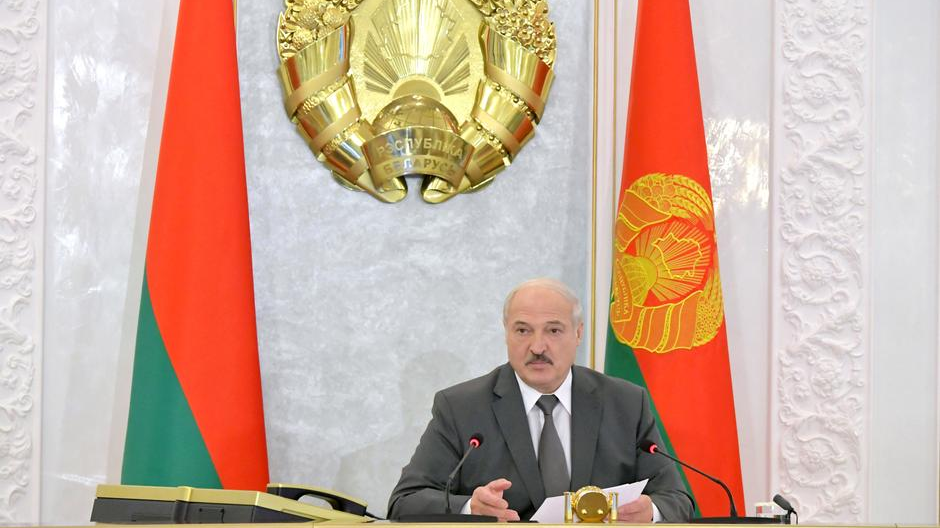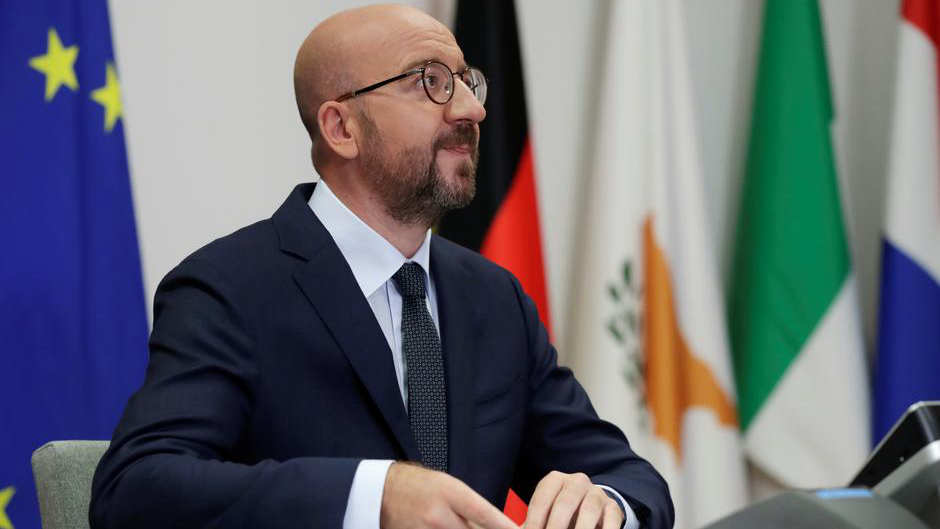
Belarusian President Alexander Lukashenko chairs the Security Council meeting in Minsk, Belarus, August 19, 2020. /Reuters
Belarusian President Alexander Lukashenko chairs the Security Council meeting in Minsk, Belarus, August 19, 2020. /Reuters
Belarusian President Alexander Lukashenko on Wednesday ordered the government to prevent further unrest and to protect the country's borders, as EU leaders convened a meeting on the country's political situation.
"There should be no more riots in Minsk. People are tired; people demand peace and quiet," Lukashenko said during a meeting of his security council amid unrest there over an August 9 presidential election, which protesters say was corrupted.
Lukashenko said he had instructed border authorities to ramp up defenses "along the entire perimeter" of the country.
"The defense ministry should pay special attention to the movement of NATO troops to the territory of Poland and Lithuania," Lukashenko said during the security council meeting. "We must monitor the direction of their movement and their plans."
Meanwhile, EU leaders agreed not to recognize the election result and to impose new sanctions soon.
The EU will soon impose sanctions on a "substantial number" of people behind election rigging and violent suppression of protests in Belarus, EU Council chief Charles Michel said Wednesday.
03:58

Earlier on the day, the Kremlin said it saw no need for Russia to help Belarus militarily or otherwise for now.
Kremlin spokesperson Dmitry Peskov, in a conference call with reporters, said Belarus itself saw no need for Russian help for now either.
But he said foreign powers are interfering in Belarus, and such interference was unacceptable.
Protesters have taken to the streets in the last 11 days to demand President Alexander Lukashenko resign after he claimed a landslide election victory.
Belarus and Russia are close allies. When asked about the possibility of Russia offering Belarus military assistance, something the Kremlin has said is available if necessary, Peskov said: "As far as the collective security treaty and union state treaty are concerned, it is true that there are various obligations between the sides for mutual help, but there is currently no such need."
He added that "the Belarusian leadership also doesn't see a need for that."
Peskov said the situation in Belarus was an internal matter that should be resolved by Belarusians themselves.
(With input from Reuters, AFP)